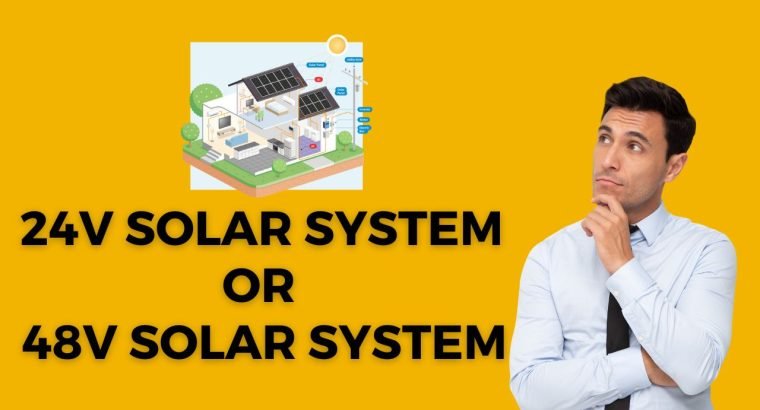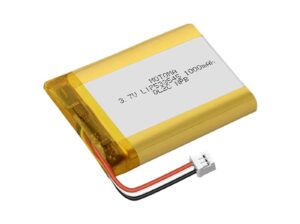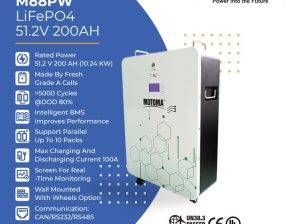A Closer Look At The Benefits Of 24V Vs 48V Solar Systems
In our increasingly tech-savvy world, the term “solar energy” is no longer a foreign concept; more and more people are choosing to invest in solar systems for their homes or businesses. But before you choose the best system for your needs, it’s important to understand the differences between two of the most common types of solar systems: 24v and 48v. Let’s take a closer look at the advantages and disadvantages of each so that you can make an educated decision about which is right for you!
Introduction: What are 24V and 48V Solar Systems?
As we all know, solar energy is one of the most popular and fastest-growing forms of renewable energy. Solar systems are installed in homes and businesses to generate electricity from the sun’s rays. A solar system typically consists of solar panels, an inverter, batteries, and a charge controller.
Solar panels are exposed to sunlight which generates Direct Current (DC) electricity. The inverter then converts this DC electricity into Alternating Current (AC) which is what our appliances run on. Batteries can be used to store excess electricity generated during the day so that it can be used at night or during a power outage. Charge controllers are used to regulating the flow of electricity from the solar panels to the batteries to prevent overcharging.
Solar systems are available in different voltages including 24V and 48V. The voltage refers to the amount of electrical pressure or force that drives the current through a circuit. In other words, it’s a measure of how much “oomph” the electrons have as they flow through the wires.
Most home solar systems use either 24V or 48V because these are standard voltages for household appliances and electronics. Higher voltage solar systems (up to 600V) are also available but they are less common because they require specialized equipment that can handle the higher voltage safely.
So, what’s the difference between 24V and 48V solar systems? Let’s take a closer look
The Advantages of 24V vs 48V Solar System
The advantages of 24V vs 48V solar systems are numerous. For one, 48V solar systems tend to be much more expensive than 24V ones. This is because 48V solar panels usually have twice the number of cells as their 24V counterparts. This means that they require more raw materials and labor to manufacture. As a result, they typically cost significantly more than their lower-voltage counterparts.
Another advantage of 24V solar systems is that they typically have a higher efficiency rating than 48V ones. This is due to the fact that they have fewer cells which results in less light being lost during conversion into electrical energy. In addition, 24V systems often have a lower maximum power output (MPO) than 48V systems. This is because the shorter circuit paths in 24V system components result in lower power losses overall.
Finally, 24V solar systems tend to be easier to install than their 48 Volt counterparts. This is because the lower voltage components can typically be connected with standard household wiring. In contrast, connecting 48 Volt components often requires the use of specialized equipment and tools. As a result, installation costs for 24V solar systems are often significantly lower than those for 48 Volt systems
Cost Effective
48V Solar systems are very cost-effective. In most cases, they will save you money on your energy bill, and in some cases, they can even eliminate your energy bill entirely. The upfront cost of a V-Solar system is usually less than half the cost of a traditional solar system, and the payback period is typically much shorter as well.
Efficiency
The main advantage of 48V solar systems is their efficiency. They are able to convert more of the sun’s energy into usable electricity than 24V systems. This is due to the fact that they have fewer components and less loss of energy through heat. In addition, 48V solar cells are able to operate at higher temperatures than 24V cells, which makes them ideal for use in hot climates.
Voltage Output
In a 48V solar system, the voltage of the panels is increased in order to produce more power. This results in higher output from the panels and a more efficient system overall. However, there are some drawbacks to this type of system that you should be aware of before making your decision.
Design Considerations for 24V vs 48V Solar Systems
There are a few key design considerations to take into account when deciding between 24V and 48V solar systems. The most important factor is the voltage of the panels being used. Most solar panels are either 24V or 48V, so it’s important to make sure that the system you select is compatible with your panel voltage.
Another key consideration is the amount of power that your system will need to generate. If you have a high-powered system, you may need to go with a 48V system in order to get the most out of your panels. On the other hand, if you have a lower-powered system, a 24V system may be enough. There are also hybrid systems available that can offer the best of both worlds.
Finally, you’ll need to think about what type of batteries you want to use with your system. Some batteries are only compatible with certain voltages, so it’s important to choose wisely. Once you’ve taken all of these factors into consideration, you should be able to decide whether a 24V or 48V solar system is right for you.
Installation Tips for 24V vs 48V Solar Systems
There are a few things to keep in mind when installing a 24V or 48V solar system. First, the voltage of the system will dictate the number of solar panels needed for an effective installation. Second, the higher the voltage, the more efficient the system will be. Third, you’ll need to factor in weather conditions and your average daily sunlight exposure when deciding which voltage is right for you.
Keep these factors in mind and then follow these tips to get the best installation results:
24V Solar System
- If you live in an area with high sun exposure, then a 24V system is a good choice. It will require fewer panels to generate the same amount of power as a 48V system.
- Install your panels in series so that each one receives maximum sunlight throughout the day. This will help increase your system’s overall efficiency.
- Use heavy-duty mounting brackets and hardware to secure your panels to your roof or other structure. High winds can cause damage to improperly mounted panels.
48V Solar System
- A 48V system is ideal if you live in an area with moderate sun exposure. It is more efficient than a 24V system and will require fewer panels to generate the same amount of power.
- Install your panels in parallel so that each one receives an equal amount of sunlight throughout the day. This will help prevent any one panel from being overworked and increase your
Maintenance Considerations for 24V vs 48V Solar Systems
The main difference between 24V and 48V solar systems is the amount of power they can generate. A 24V system can generate up to 1,000 watts (W) of power, while a 48V system can produce up to 2,000W. This means that if you have a larger home or business, you’ll need a 48V system to meet your needs.
When it comes to maintenance, both 24V and 48V solar systems require little upkeep. However, because 48V systems generate more power, they may require more frequent cleaning and inspection than 24V systems. Additionally, if you live in an area with extreme weather conditions (i.e., high winds or heavy snowfall), your 48V system may require more attention than a 24V system.
Conclusion
With a comprehensive analysis of the benefits of 24V Vs 48V solar systems, it’s clear that there are significant advantages to both systems. While 24 Volt systems are lower in cost and typically easier to install, they don’t provide as much output. On the other hand, while 48V systems can produce more energy per panel than a 24V system, they also require more complex installation and take up more space on your roof. Ultimately both options have their positives and negatives; depending on individual needs one option is not necessarily better than the other—it will come down to what you need out of your solar system.
Comments (2)
You must be logged in to post a comment.




[…] wall-mounted battery backup solutions for solar systems. We’ll start by discussing how these systems work and their benefits. We’ll then review different products: the Tesla Powerwall 2, sonnenBatterie Eco 8, and LG […]
[…] financial benefits of solar power are clear. Investing in a solar system can help you save money on electricity bills and potentially make money from any excess energy you […]